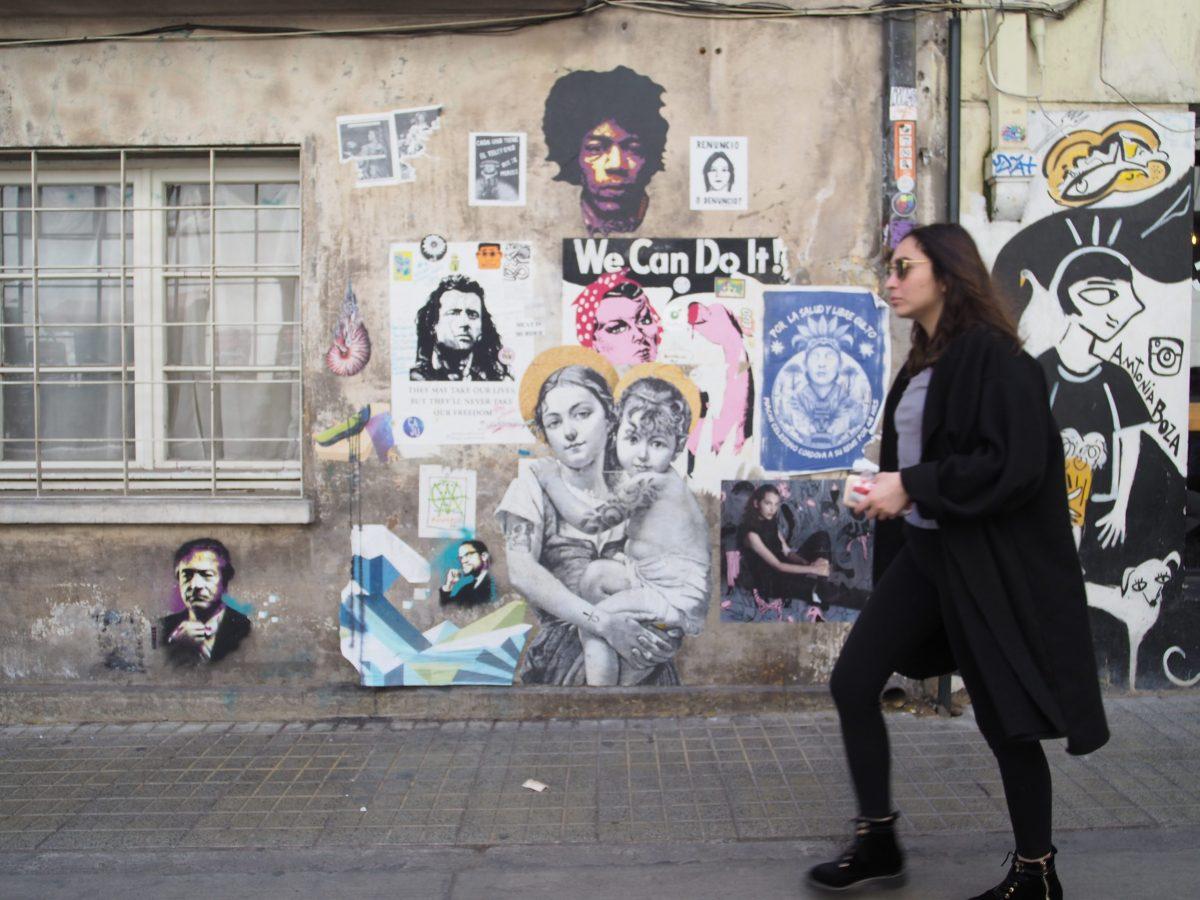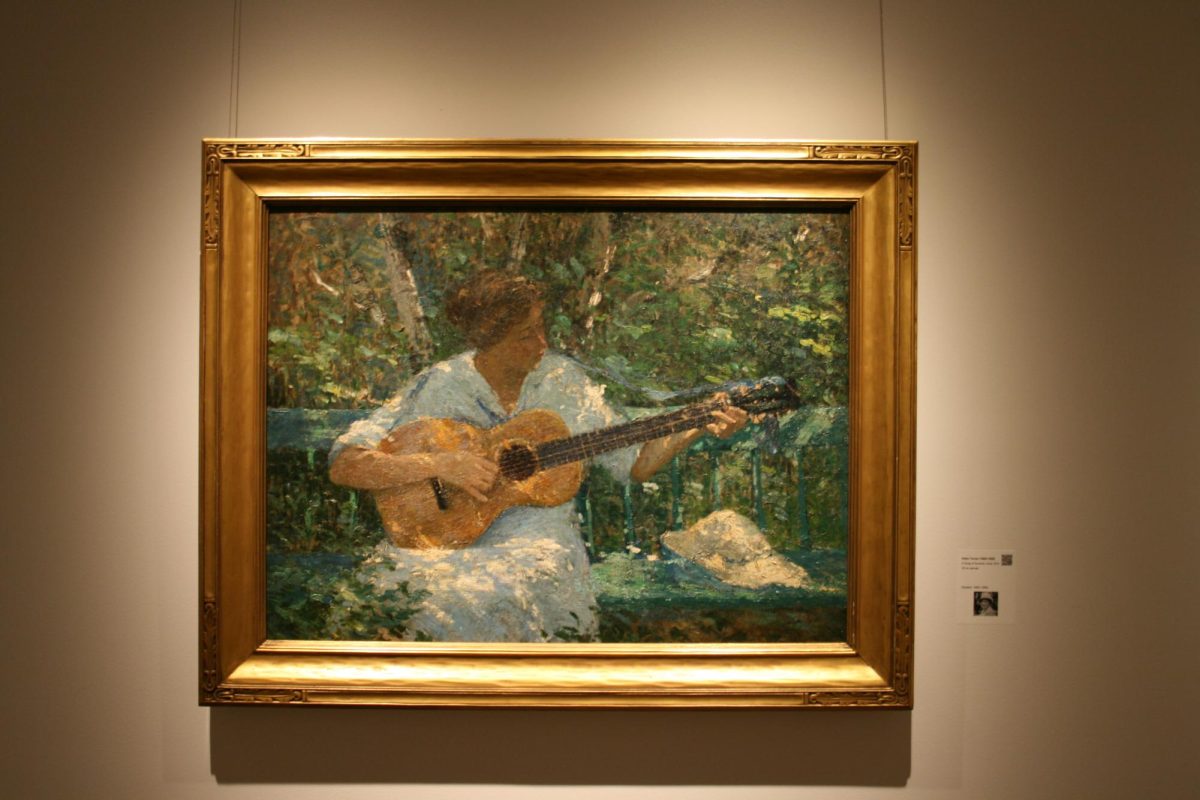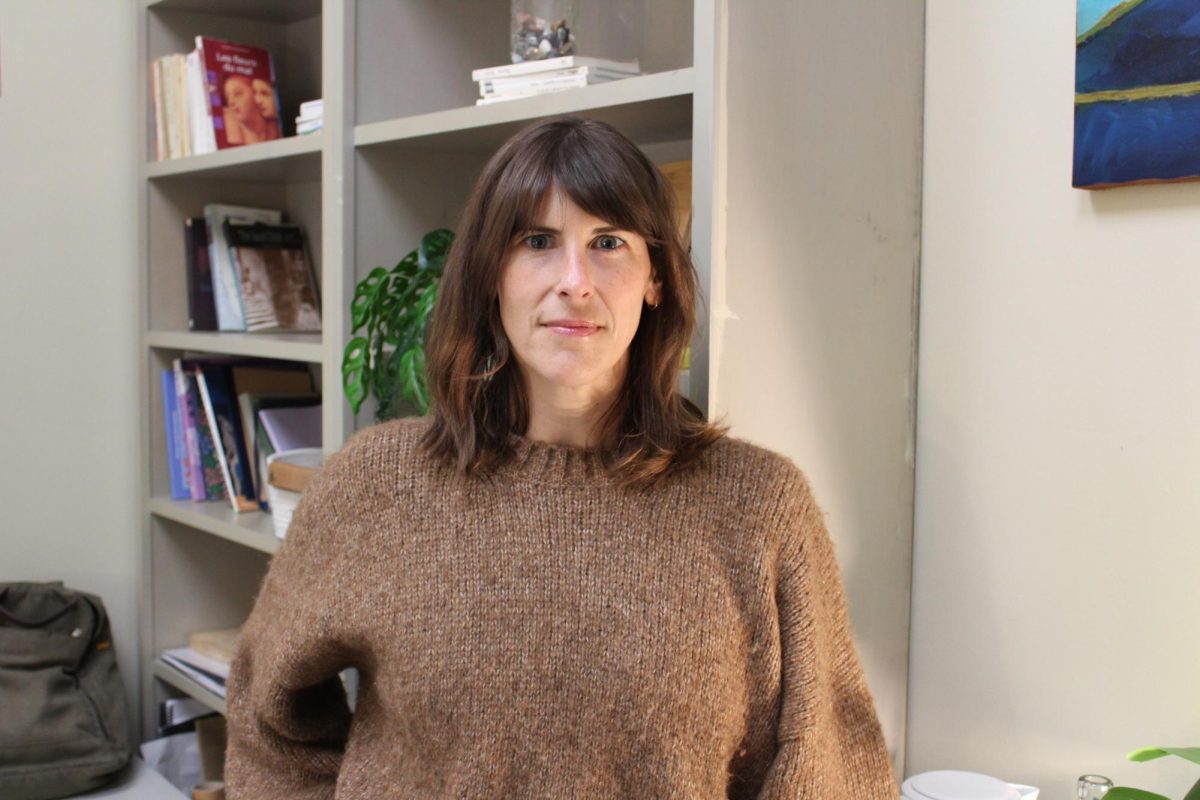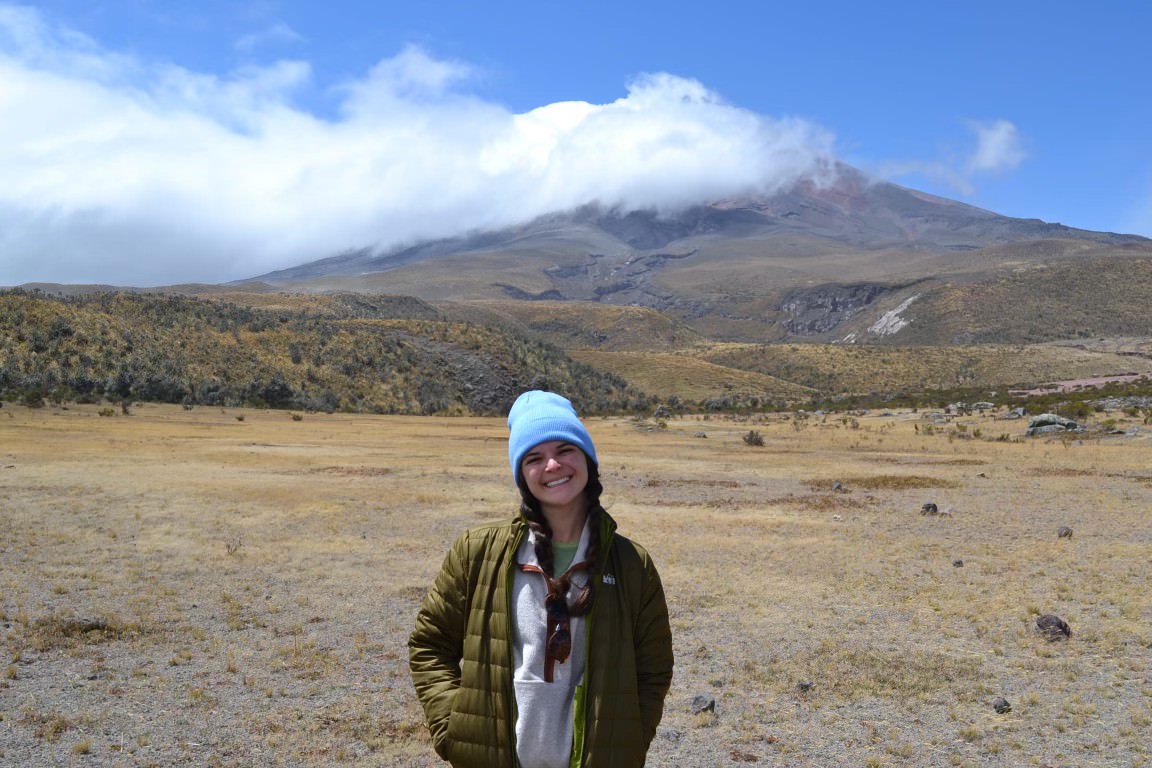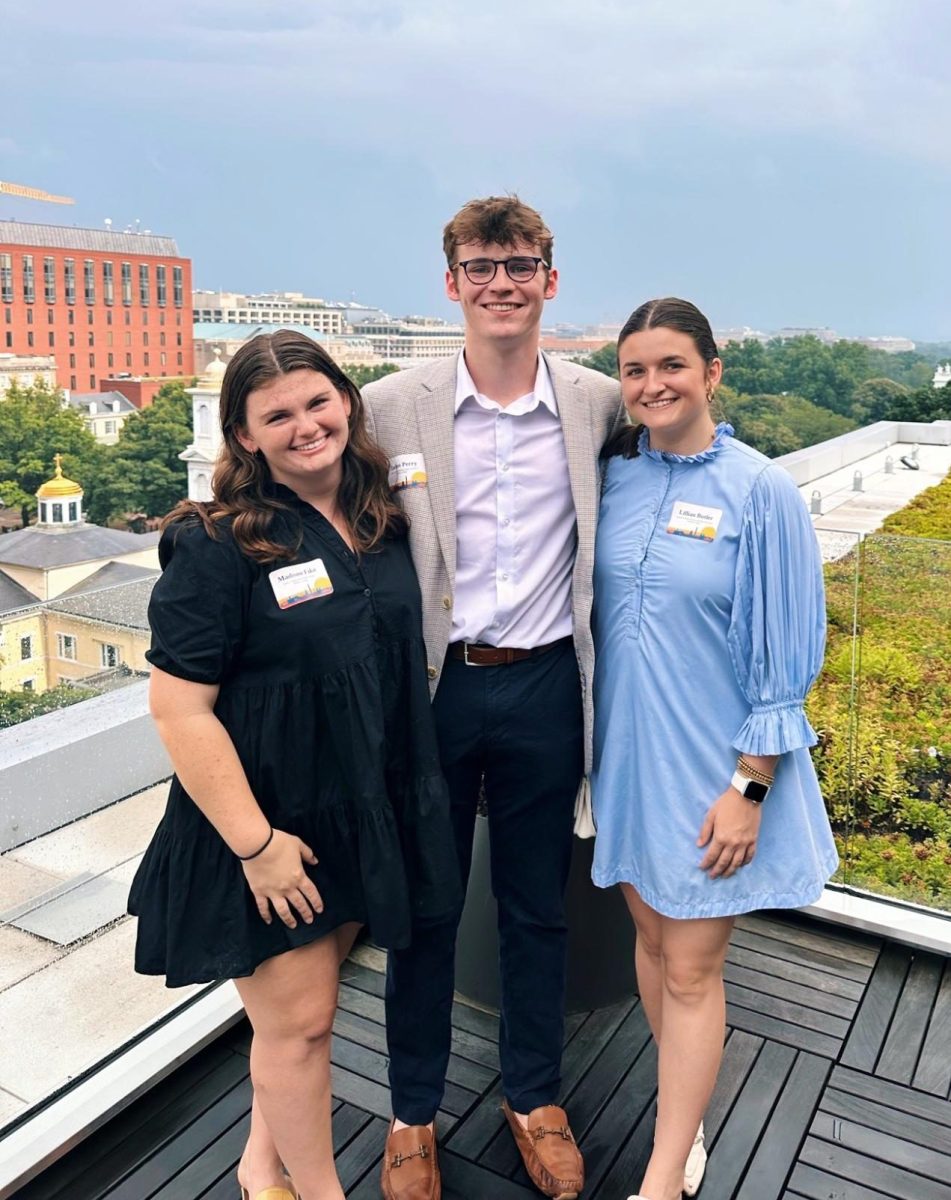The nuances of conducting research
When I began to prepare myself to conduct an independent research project on the role of art in the South American feminist movement, I imagined that my language background in Spanish would be the most valuable tool I packed. I thought that maybe my developing skills in visual analysis as an art history student would be a ‘runner up’ in my travel tool box. My packing list even included my mini polaroid printer so that, in the actual moment with an interviewee, I could print a polaroid of the artist, a work of art (if purchased) and me as a physical manifestation of our new connection. I imagined each of these artists keeping this polaroid in their studios, inspired by the fact that a number of artists across the continent shared a similar image, just like they shared a similar goal: to use their artistry to propel the women’s rights movement.
I did not imagine that tipping two performers on the Santiago metro would earn me a “free” mixtape, and that the mixtape I handed off to the young woman beside me would in turn lead to a conversation about my project nor an impromptu interview with her once we exited the metro car.
The rappers from the red line that afternoon were truly talented, so I didn’t mind dropping a collection of coins in his fedora (yes, fedora). I was ecstatic to receive a complementary mixtape in return. Unfortunately, I did not have a means to enjoy his mini CD—regrettably, “Walkman” was not on my packing list. So after laughing at how much we enjoyed the live music, I gifted the CD to the young woman in the seat across from me.
“Bacán!” she delighted.
“Bacán” is an expression similar to “awesome” and well-integrated into the Chilean vocabulary. I responded with another Chilean expression that every exchange student keeps in his or her back pocket. My metro friend visually and verbally expressed her surprise by my Chilean Spanish, which led to a discussion of my stay in the country, my travel plans for December, January, and February, and eventually my research project. We were both getting off the metro at a station in Santiago with a train-length mosaic that promotes a positive childhood, beginning on the left with an image of a Chilean woman breast-feeding her baby.
The newest mixtape owner made a passing comment about the artwork. In that moment, I saw my window open.
“Can I interview you for my project? Part of it includes talking with artists, but it’s also important to understand how non-artists perceive the relationship between art and feminism,” I rapidly explained.
She agreed and signed the consent form (when conducting ethical research with human subjects, keeping an extra copy of the consent form on me at all times is like always securing my passport in a zipper pocket), then I removed my notebook, pen, phone (recording purposes) and camera from my backpack. I decided to keep the impromptu interview brief. She explained how her work environment has made her uncomfortable at times but her commute on the metro and chances to freely appreciate the art and music of strangers makes every day worth it. She is looking for a new job but cannot afford to quit since she has two toddlers at home, whom she raises alone.
When we parted ways, I transferred from the red line to the green. I was in Santiago for the weekend to interview an artist, Mikele Orroño, whose works primarily concern the manipulation of old and new female images to create a jarring effect; when I first encountered her art at a fair back in August, I was originally attracted to her collages of painted figures from the Renaissance and photographic images from pornographic magazines. Shortly, however, I arrived at her home. I was greeted by a six-year old boy. Orroño too is a single mom. Since that Friday evening was particularly blustery and cold, she made us tea. Towards the end of our conversation, Mikele revealed that she had planned a small “get together” with some of her friends and hoped I’d stay. I did, grateful for this developing friendship and hopeful I would network with other artists for my research. Before she went upstairs to change, I purchased one of my favorite pieces that features the lower half and partial mane of the goddess Venus, from Boticelli’s Birth of Venus. Then I helped Mikele prepare a jar of navegado, a delectable Chilean beverage of hot red wine and spices that washes down well with cake.
Her son showed me his latest drawing as I stirred the currant-colored liquid. I thought about the donation I made to the rapper on the red line that led to a bonus conversation with the woman from the metro as I wafted the cozy scent of Malbec and cinnamon. This is, of course, my first time conducting an independent research project, so I don’t have the luxury of comparison to past experiences. However, the tools I never thought I’d need, the skills I never thought I’d be glad I “packed” when I left for Chile 3 months ago, seem so nuanced. From mixtape culture to Chilean slang, to Renaissance art knowledge and interacting with children, this research is asking far more of me than I anticipated—but in the best of ways and with a glass of navegado on the side.
Photo Caption: A Chilean woman walks past a street art work by artist Sol Barrios who, similar to Mikele Orroño, utilizes religious and antique subjects in juxtaposition of modern imagery























